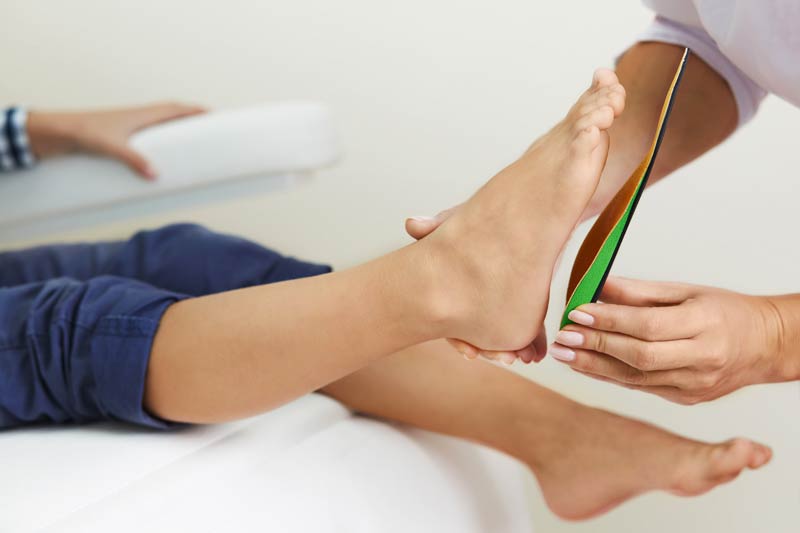Podiatry Treatments
Biomechanical Assessment
Podiatry can offer a solution for ongoing foot pain. It can also help unresolved pain elsewhere in the body. If your feet and ankles are malaligned it often means your knees, hips and back are also out of sync and causing pain. Correct the position and support of the feet and the rest of your body follows as it does not have to try and compensate for a bad foundation.
Our body parts are interconnected and pain in one area can be the result of an issue elsewhere.
At Feet Matters we use biomechanical assessment to examine the movement of the whole body, not just the feet.

Biomechanics is the name podiatrists use to describe an analysis of the mechanics of human movement. It is the science which explains how and why the body moves as it does. A biomechanical assessment at our Dartford Foot Clinic will involve an examination not just of the feet but also their relationship to other joints of the lower limb.
Our limbs and joints are all connected. A weakness or structural problem in one area can cause issues in another. An issue you have might stem from an injury or soft tissue damage somewhere else in the body.
Biomechanical assessment can be useful if you have pain in your feet, lower limbs or back. In particular it helps where a cause has not been established. We see patients, for example, with pain in the lower back where that pain is exacerbated by walking. The biomechanical assessment helps to figure out if your lower-limb movement and gait are contributing to the pain in your lower back.
What treatments follow biomechanical assessment?
The treatment depends very much on the findings of the assessment. Sometimes, Feet Matters will advise on simple changes such as wearing trainers designed for your gait or wearing insoles. These solutions can be very effective in removing pain.
If your mechanics are causing the injury or pain, insoles/orthotics or custom-made orthotics might be the solution.
Orthotics / foot supports enhance foot function. They are very successful in treating many conditions, including :
- Plantar fasciitis
- Heel pain
- Tendonitis
- Knee pain
- Shin splints/ compartment syndrome
- Back pain
- Ankle pain
- Bunion and metatarsal pain
We may, at times, refer you to another health care professional such as a physiotherapist where this could be of benefit. The reasons could be to improve muscle strength or flexibility through exercises. Other referrals may include an osteopath or rheumatologist. Occasionally, we refer patients for imaging such as MRI scans, X-rays or CT-scans.
Share:



